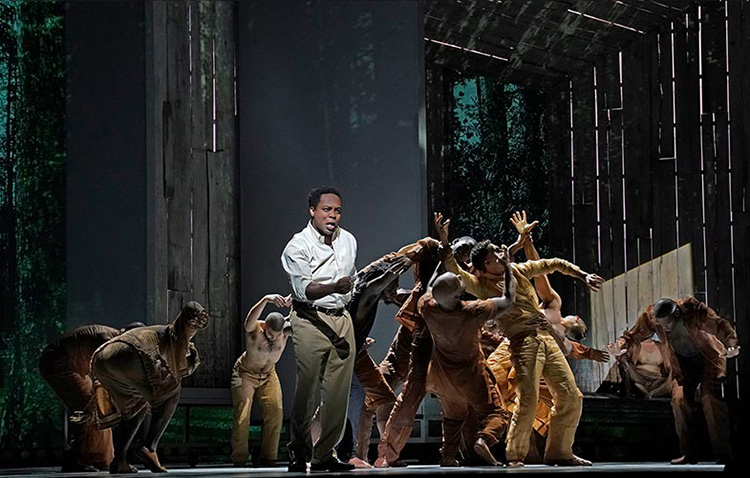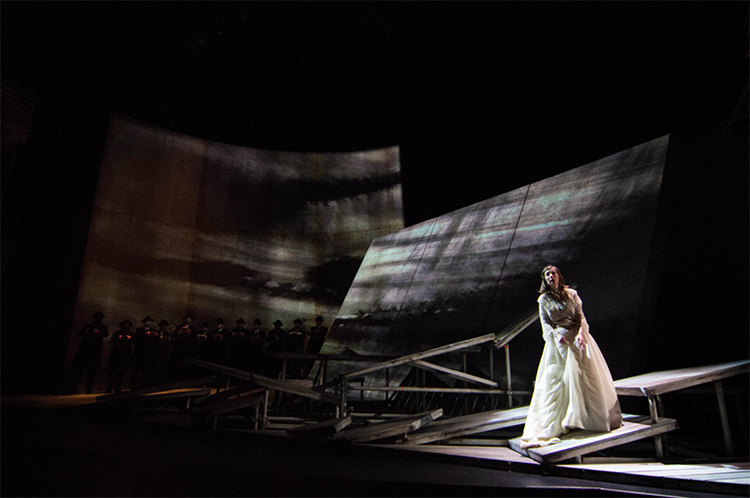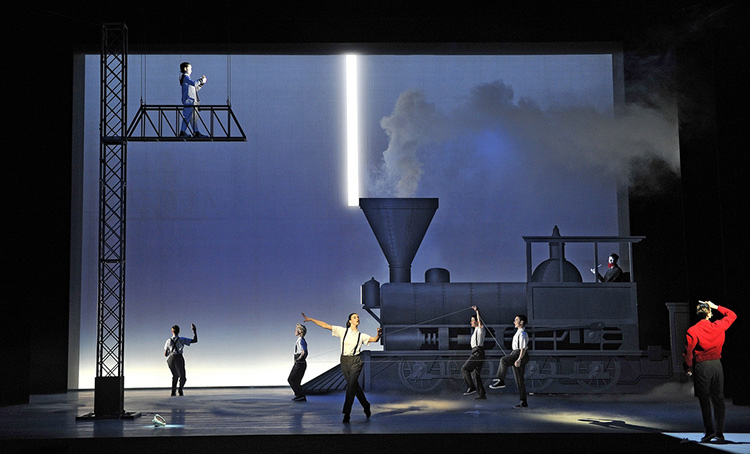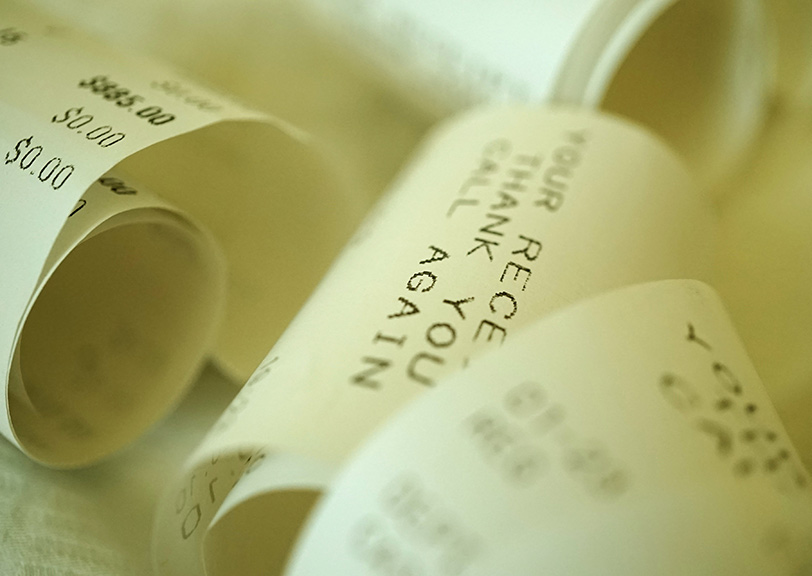ENTER YOUR EMAIL TO RECEIVE OUR WEEKLY NEWSLETTER
Breaking New Ground at the Met Opera
Contemporary works are making inroads. The classics? Not selling so well
By Ian Strasfogel

Fire Shut Up in My Bones: A mingling of harmony and dissonance in the Met Opera’s first African American production. Terence Blanchard, composer/Kasi Lemmons, librettist.
. . . . . . . . . . . . .
February 20, 2023
I couldn’t believe my eyes. The grande dame of American opera became front page news at The New York Times for a most unexpected reason. The piece revealed that the Metropolitan Opera was gearing up to “give fewer performances next season and accelerate its embrace of contemporary works, which, in a shift, have been outselling the classics.”
That’s astonishing. I’ve been going to the Met since I was a kid, and its public always demanded a steady diet of operatic classics—well known, well-worn war horses, like Carmen or La Traviata or La Boheme. Now, apparently, these masterpieces have lost their magic. They no longer seem able to draw the vast crowds needed to fill the Met’s cavernous auditorium at Lincoln Center.
Peter Gelb, the company’s valiant (and clearly embattled) general manager proposes remedying this disturbing new reality, which, of course, was exacerbated, if not precipitated, by the pandemic, by scheduling more premieres like Terence Blanchard’s recent Fire Shut Up in My Bones and Kevin Puts’s The Hours. Those two works enjoyed sold-out houses, while older masterworks failed miserably at the box office. For the first time in my experience, discount tickets were widely available for Met performances of hardcore favorites like Tosca, Rigoletto, and even Verdi’s ultimate potboiler, Aida.
So what’s a beleaguered general director to do? How is he (or, eventually, no doubt, she) to fill all the empty seats? And they must be filled, because the Met heavily relies on box office receipts to cover its vast expenses. Mr. Gelb’s response is to provide greater novelty, to stage more operas directly addressing our most urgent contemporary concerns. Fire Shut Up deals with child abuse in an impoverished Southern Black family. A major theme of The Hours is sexual identity and repression in Middle America.
Having been an opera stage director for many years, I very much support this bold initiative. It’s always been my belief that opera is, and must remain, a vibrant, living art form. The works I’ve always felt closest to are challenging, contemporary pieces, written by brilliant composers like Roger Sessions, Hans Werner Henze, Gyoergi Ligeti, Luciano Berio, Bruno Maderna, and Wolfgang Rihm. Yes, males, all of them. But I’m happy to report that several female opera composers have also come to the fore in recent years: among them the Americans Ellen Reid and Missy Mazzoli.

Breaking the Waves: Cast adrift in the operatic rendering of the emotionally and spiritually challenging Lars von Trier film. Missy Mazzoli, composer/Royce Vavrek, librettist. Opera Philadelphia, 2016 premiere.
. . . . . . . . . . . . .
The Met’s new agenda will receive its first big test next season, when the company revives Fire Shut Up in My Bones and The Hours. Will these operas still appeal? Will they continue to sell out the house?
Not that the outlook is necessarily promising. Despite the abovementioned sellout performances, the Met hasn’t had much luck with revivals of contemporary opera. I was 12 when it premiered Igor Stravinsky’s The Rake’s Progress. Rudolf Bing, at the time the Met’s reigning tyrant-manager, decided, quite admirably, that despite this opera’s rather muted initial reception, he would bring it back the following season. After all, Stravinsky was the world’s greatest living composer, and none other than the poet W. H. Auden, equally admired in literary circles, was the librettist. Thrilled that one of my favorite works was being revived, I rushed to see one of its few performances. In those long-gone, pre-Lincoln Center days, when the theater was still on 39th Street, the house was almost invariably sold out. For the Stravinsky revival, however, it was shockingly, appallingly empty. It would take over 30 years for the Met to get up enough courage to present The Rake’s Progress again. (A few years later, Samuel Barber’s bittersweet romance, Vanessa, fared no better with the Met’s risk-averse audience.)

Einstein on the Beach: Time-bending, minimalist, convention-defying, cryptic, kinetic, storyline-free opera. By Philip Glass and Robert Wilson. Opéra Berlioz, Montpellier, 2012. Photograph: Lucie Jansch.
. . . . . . . . . . . . .
But enough pessimism! Peter Gelb is undertaking something bold, something momentous. May he and his colleagues discover composers and librettists free enough and gifted enough to create works that truly speak to our time, that lure the public back to the great hulking barn the Met calls its home.
No doubt Mr. Gelb has already received hundreds, if not thousands, of unsolicited suggestions to help him fulfill his mission.
I’ve got a few to add to his list:
Einstein on the Beach (Philip Glass and Robert Wilson). This dazzling spectacle was briefly seen at the Met in 1976, when it filled the house—and thrilled it. It’s the first of Glass’s three “biographical” operas. The other two, Satyagraha and Akhnaten, were recently presented by Mr. Gelb and his company to great success. The modernist masterpiece, Einstein, would do every bit as well, if not better.
Breaking the Waves (Missy Mazzoli, composer/Royce Vavrek, librettist). A powerful, startlingly touching reinvention of the Lars Van Trier classic film. Premiered here in New York by the excellent Prototype Festival, it has enjoyed successful revivals in Philadelphia and Los Angeles and at the Edinburgh Festival.
Innocence (Kaija Saariaho, composer/Sofi Oksanen, librettist). I very much want to see this work, which deals with the aftermath of a school shooting. (Talk about contemporary relevance, especially for us Americans!) Reports from its early European performances have been exceptionally enthusiastic.
Of Mice and Men (Carlisle Floyd, composer and librettist). Based on the John Steinbeck novel, this taut, intensely emotional work provides excellent opportunities for committed singing actors. I staged two of its early productions and feel confident that, despite its somewhat risk-averse score, audiences at the Met would be gripped by its heartfelt sincerity.
Ian Strasfogel is an author, opera director, and impresario who has staged over a hundred productions of opera and music theater in European and American opera houses and music festivals. His comic novel, Operaland, and his biography of his father, Ignace Strasfogel: The Rediscovery of a Musical Wunderkind, were both published in 2021.











